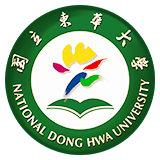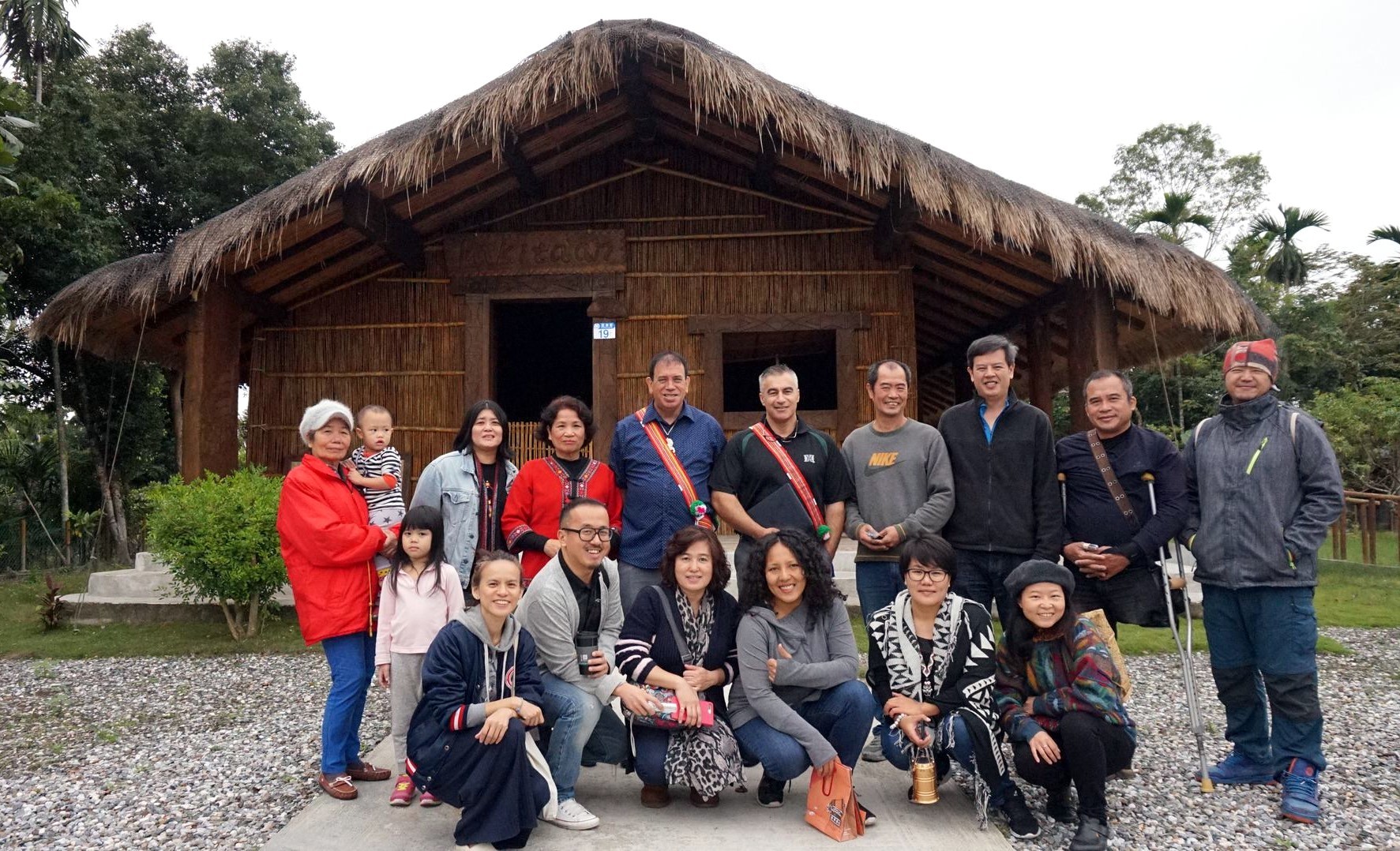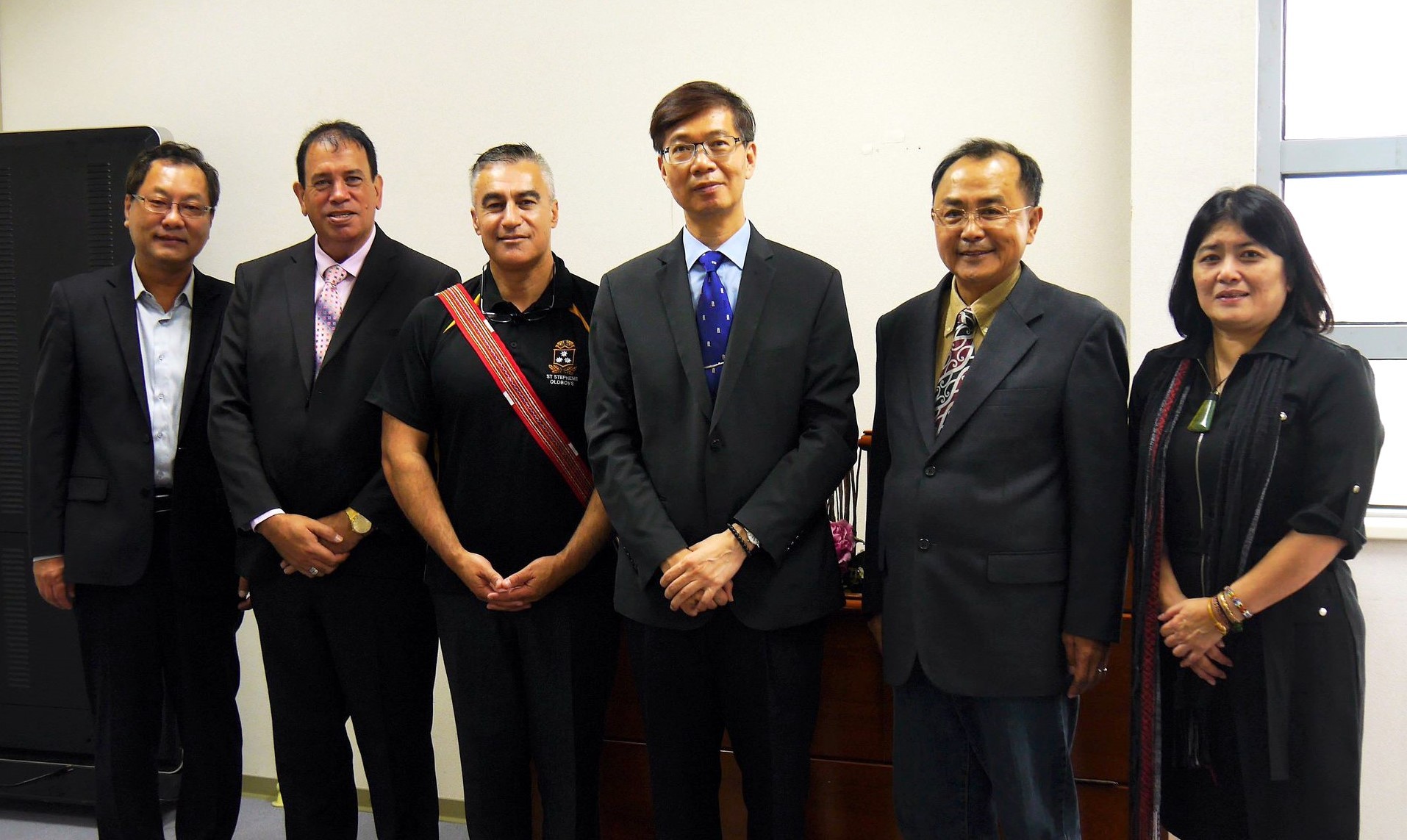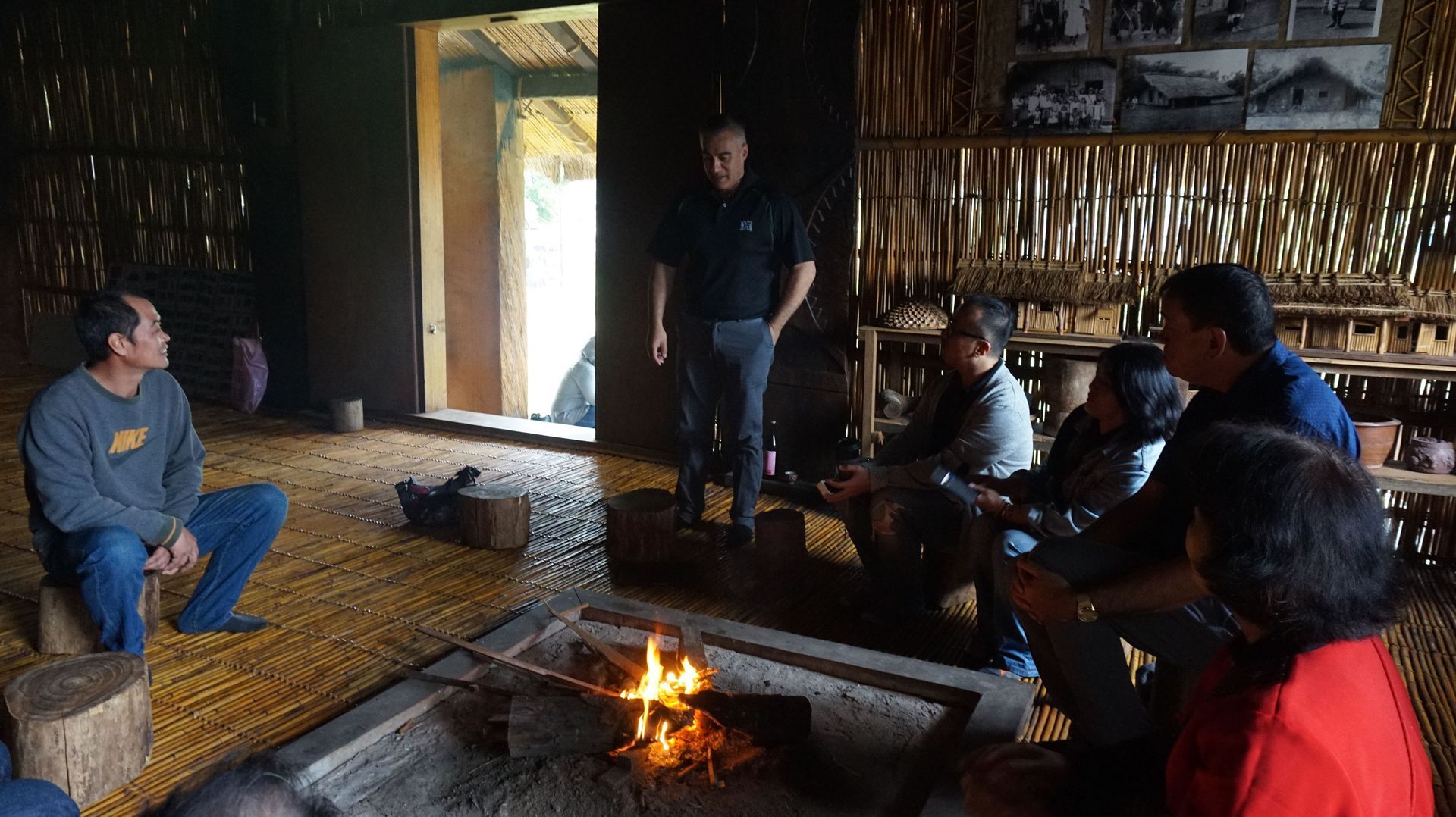


Visit to Kakita’an, ancestral house of Tafalong community, arranged by IIA’s collaborative partner Hualien Indigenous Community College
The Center of International Indigenous Affairs (CIIA) affiliated with the College of Indigenous Studies (CIS) at National Dong Hwa University (NDHU) invited two Māori guests from New Zealand, Nepia Winiata, Executive Director of Education Delivery Services at Te Wānanga o Aotearoa (TWoA), and Dr. Te Kani Kingi, Executive Director of Research and Innovation at Te Whare Wānanga o Awanuiārangi (TWWoA), to join a series of academic events for ’Austronesian Reconnection : Taiwan-Aotearoa Indigenous Education Forum’ held from 12th to 15th December 2017. On Dec 13th, the first forum under the series hosted by Dr. Pasuya Poiconx (浦忠成), Dean of CIS, invited faculty members and students across different disciplines to discuss bilateral projects between Taiwan and New Zealand. In the afternoon, Dr. Chin-Peng Chu (朱景鵬), Vice President and Dean for Office of International Affairs at NDHU and the two wānanga executive directors met to confirm details of a forthcoming MoU and establishment of base office for collaborative operation. On Dec 15th, the second forum, hosted by Dr. Awi Mona(蔡志偉), Director of Center for Indigenous Education and Research (CIER) at National Academy for Educational Research (NAER), invited scholars and the general public to discuss transitional justice and reconciliation based on education driven by indigenous values.
The forum series is a highlight of the ’Taiwan-Aotearoa Connection: South-bound Indigenous Education’ project funded by the Ministry of Education. Focusing on training both community and international indigenous talents and the experience and perspective provided by the two wānanga executives, the forums offer potential framework and pathways to practicing indigenous education amidst transitional justice. The project director Dr. Jolan Hsieh ( Bavaragh Dagalomai / 謝若蘭) also arranged a visit to Tafalong, Karoro’an, and Pate Rungan communities to see the history of Pangcah traditional house, Kebalan traditional weaving crafts and industry, and discuss opportunities and challenges encountered by indigenous advocates and artists.
The first forum opened with a welcoming dance by CIS’s dance troupe at NDHU and blessing form chief Payo(林榮元)from the local Banaw community. This was followed by presentations by Nepia Winiata focusing on the initiative and development of TWoA and the difficulties and visions in the practice of indigenous education, and Dr. Te Kane Kingi emphasizing the role that research played in cultural identity and revitalization at TWWoA. The second half of the forum an open discussion for each participant to share thoughts on Māori education and bilateral collaboration. Mumu Liskadaan(陳坤昇), Director of Educational and Cultural Affairs Bureau at the Council of Indigenous Peoples (CIP), briefly described an ongoing plan for establishing an indigenous university in Taiwan during his special visit to the forum. In addition, Dr. Ko-Ching Tung(董克景), Chair for the Department of Indigenous Language and Communication at NDHU, inquired after student demographic distribution, vocational training, and employment after graduation at the wānganga. Dr. Hsiang-I Teng(鄧湘漪), Post-doctoral Fellow of Eastern Taiwan Environmental and Humanities Research and Social Practice Center at NDHU, raised practical issues of indigenous education in Taiwan with Mumu Liskadaan based on the development of Māori education captured in the forum.

Two wānanga executive directors confirming details of the forthcoming MoU and establishment of operational offices at NDHU. (From the left: Director Mumu Liskadaan, Executive Director Nepia Winiata, Proessor Te Kani Kingi, Dr. Chin-Peng Chu, Dr. Pasuya Poiconx, and Dr. Jolan Hsieh)
In addition to the two executive directors, Tupe Solomon-Tanoai, Deputy Director of New Zealand Commerce and Industry office Taipei, two CIP Deputy Minister , Dr. Tibusungʉ’e Vayayana(汪明輝) and Dr. Calivat Gadu(鍾興華), were also invited to the second forum. Mr. Sifo Lakaw(鍾文觀), Consultant of Presidential Office Indigenous Historical Justice and Transitional Justice Committee, set the basis of discussion by opening forum with the decolonization of Māori education. Robust and vibrant discussions followed on the initiatives and development of indigenous education from both historical and current perspectives in both countries. In particular, Dr. Ciwas Pawan(吉娃思•巴萬) from Hungkuang University was concerned about Taiwan’s indigenous education in contrast with Maori’s experience after the implementation of the National Language Development Law. Moreover, Dr. Rata Mayaw(陳誼誠), Chairperson of Indigenous Peoples Commission in Taipei City Government, raised issues regarding training of language teachers and identity of non-Māori students in Māori institutions in addition to sharing his experience on promoting indigenous languages in Taipei City.
Dr. Hsieh pointed out that through these forums we hope to devote collaboratively to the development of education driven by indigenous values. Indigenous education does not only have practical implications in terms of transitional justice and reconciliation, it also provides critical grounds for a multicultural society. In addition to a productive output of the Taiwan-Aotearoa connection project, the series of forums also serve as a platform for each of us to revisit the framework of indigenous education from different viewpoints and to strengthen international support of Austronesian communities.

Professor Te Kani Kingi speaking on Māori culture and the challenges and opportunities indigenous education faces in front of Kakita’an
|
|

